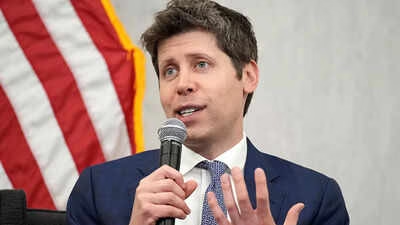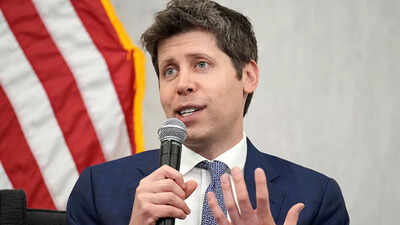As artificial intelligence (AI) continues to transform the global workplace, questions about which jobs will survive, and which will vanish, have never been more urgent. OpenAI Chief Executive Officer Sam Altman has stepped into the conversation, offering insights into roles he believes are most vulnerable to automation and those likely to remain insulated from technological disruption. Speaking on The Tucker Carlson Show, Altman acknowledged the inherent uncertainty in predicting the future, yet underscored areas where he feels “confident” about the impact of AI.
Customer support: The first in line
Altman singled out customer support roles, particularly those conducted over the phone or computer, as likely casualties of AI adoption. “I’m confident that a lot of current customer support that happens over a phone or computer, those people will lose their jobs, and that’ll be better done by an AI,” he explained. According to Altman, AI-powered systems can provide faster, more consistent assistance, reducing the need for human operators in routine support tasks.Yet, he was careful to note that not all customer support is equally susceptible. Roles that require nuanced human judgment or personal verification may still necessitate a human presence, highlighting the complexity of automation’s reach.
Coders and programmers: A field in flux
The future of computer programming remains more ambiguous. While AI has empowered non-programmers to generate websites, applications, and even games using natural language prompts, Altman emphasized that the long-term impact on coders is still uncertain. “A job that I feel way less certain about what the future looks like for is computer programmers,” he said. “The meaning of being a computer programmer today is very different than it was two years ago. You’re able to use these AI tools to be hugely more productive.”Altman pointed to the explosive global demand for software as a counterbalance, suggesting that while AI can augment productivity, it may also generate entirely new opportunities over the next five to ten years. Whether this will translate into more jobs or fewer remains an open question.
Jobs unlikely to be replaced: The human factor
Not all professions are equally threatened. Altman highlighted nursing as an example of a role resistant to AI disruption. “A job that I’m confident will not be that impacted is like nurses. People really want the deep human connection with a person. No matter how good the advice of the AI is or the robot or whatever, you’ll really want that,” he said.This view echoes arguments from other leaders in the AI field. Earlier in the year, DeepMind CEO Demis Hassabis noted that while AI might eventually assist doctors in diagnosis, the empathy and human touch that nurses provide cannot be replicated by algorithms.
A glimpse into an uncertain future
Altman’s reflections paint a nuanced picture of the AI-driven workplace. Routine, repetitive, and digitally mediated roles appear most at risk, while professions grounded in empathy, human judgment, and interpersonal connection may remain relatively safe. As AI continues to evolve, the challenge for workers and policymakers will be to anticipate these shifts, retrain where possible, and reimagine the roles that define the modern labor market.In Altman’s own words: “No one can predict the future. But we can try to identify areas where AI can add the most value, and understand where humans remain irreplaceable.”

